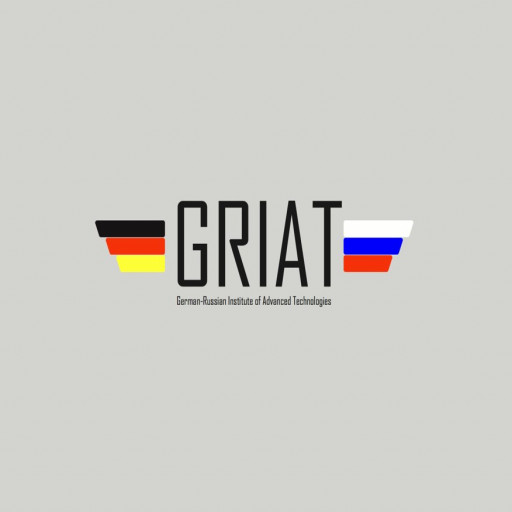Photos of university
Systems Engineering and Engineering Cybernetics at the German-Russian Institute of Advanced Technologies is a comprehensive interdisciplinary program designed to prepare students for the complex challenges of modern technological systems. This programme focuses on the integration of engineering principles, control theory, and cybernetics to develop innovative solutions for automation, robotics, and intelligent systems across various industries. Students will acquire a solid foundation in system modeling, simulation, and analysis, enabling them to design, optimize, and manage complex technical systems effectively. The programme emphasizes practical skills through laboratory work, projects, and collaboration with industry partners, providing real-world experience in system integration, control systems, and cybernetic applications. Key areas of study include control engineering, system dynamics, automation, information processing, and artificial intelligence. Graduates of this program will be well-equipped to pursue careers in engineering design, project management, systems analysis, and research and development in sectors such as manufacturing, aerospace, automotive, and information technology. The curriculum is designed to foster interdisciplinary thinking, problem-solving abilities, and the ability to work in diverse teams. With a focus on the latest technological advancements and sustainable solutions, the program aims to create professionals capable of contributing to the development of smart, efficient, and safe technological systems that meet the needs of future societies. Emphasizing innovation and scientific rigor, the programme also prepares students for further academic research or doctoral studies. Overall, the Systems Engineering and Engineering Cybernetics program provides a robust education that combines theoretical knowledge with practical application, preparing graduates for leadership roles in the rapidly evolving technical landscape.
Main Subjects
- Modern problems of control theory
- Modern problems of automation and control,
- Modern Applied Control Theory,
- Modern methods of mobile objects control
- Optimal Control
- Computer technology of control in engineering systems
- Advanced Process System Engineering,
- Dynamics of distributed parameter systems,
- Complex Systems,
- Mathematical Modeling of object and control systems,
- Computer-aided design of control means and systems,
- Hybride Discrete Event Systems
- Digital Information Processing
- Previous Education: Bachelor of Science in systems engineering and technical cybernetics or in related specialties
- Average BSc Mark - 4.0
- Basic knowledge in:
- Computer science (theory, programming in C ++ or Pascal, object-oriented programming, programming in MatLab)
- Electronics (calculation of DC and AC circuits, semiconductor devices - diodes, transistors, operational amplifiers, discrete and digital electronics, triggers, logic elements, registers, microprocessors)
- Theory of automation control (ordinary differential equations, analytical and numerical solution of differential equations, transfer functions, state space, characteristic equations, stability criteria, frequency characteristics of systems, system quality indicators, programming skills in MatLab)
GRIAT students can benefit from grants to study and train abroad. They can apply for a number of scholarships offered by the government of Tatarstan Republic, GRIAT industry partners and the European commission program for education and training. These scholarships mostly cover travel, stay, costs and medical insurance of GRIAT students during their academic semester at a German partner-university.
Recently, all of GRIAT students have used an opportunity to study abroad thanks to different international grants and programs:
- Algarysh grant provided by the Government of the Republic of Tatarstan;
- European international exchange program Erasmus+;
- SIEMENS scholarship;
- Russian educational grant program;
- Scholarship provided by the President of Tatarstan.
The Systems Engineering and Engineering Cybernetics program at the German-Russian Institute of Advanced Technologies is designed to provide students with a comprehensive education in the interdisciplinary fields of systems design, analysis, control, and optimization. The program aims to prepare graduates to develop and improve complex technical systems, integrating principles from engineering, computer science, mathematics, and management. Students will learn to model, simulate, and analyze various systems, including industrial, mechanical, electrical, and information systems, to ensure their efficiency, reliability, and sustainability.
The curriculum typically combines theoretical coursework with practical projects, enabling students to acquire both foundational knowledge and hands-on experience. Core subjects may include systems theory, control engineering, automation, cybernetics, signal processing, and software engineering. Emphasis is placed on developing skills in designing control algorithms, implementing automated solutions, and conducting system diagnostics. As cybernetics involves the study of regulatory and communication processes in machines and living organisms, students also explore topics related to artificial intelligence, machine learning, and data analysis, which are increasingly important in modern engineering practices.
The program often features laboratory work, workshops, and project-based learning, encouraging teamwork and problem-solving skills. Students may have opportunities to participate in internships or collaborative projects with industry partners, fostering practical insights into real-world applications. The interdisciplinary nature of the program allows graduates to work across various sectors, including manufacturing, transportation, robotics, aerospace, and information technology.
Graduates of this program are equipped to take on roles such as systems engineer, control engineer, automation specialist, or cybernetics researcher. They may work in designing automated control systems for manufacturing processes, developing intelligent robotics, optimizing complex networks, or conducting research in academic or industrial laboratories. The program also prepares students for advanced study or research careers, contributing to innovations in cybernetics and system engineering.
Overall, the Systems Engineering and Engineering Cybernetics program aims to cultivate professionals who can tackle complex technical challenges through innovative solutions and interdisciplinary collaboration. The program emphasizes modern technological trends and sustainable development principles, ensuring that graduates are well-prepared to meet the demands of increasingly automated and interconnected technological environments.






